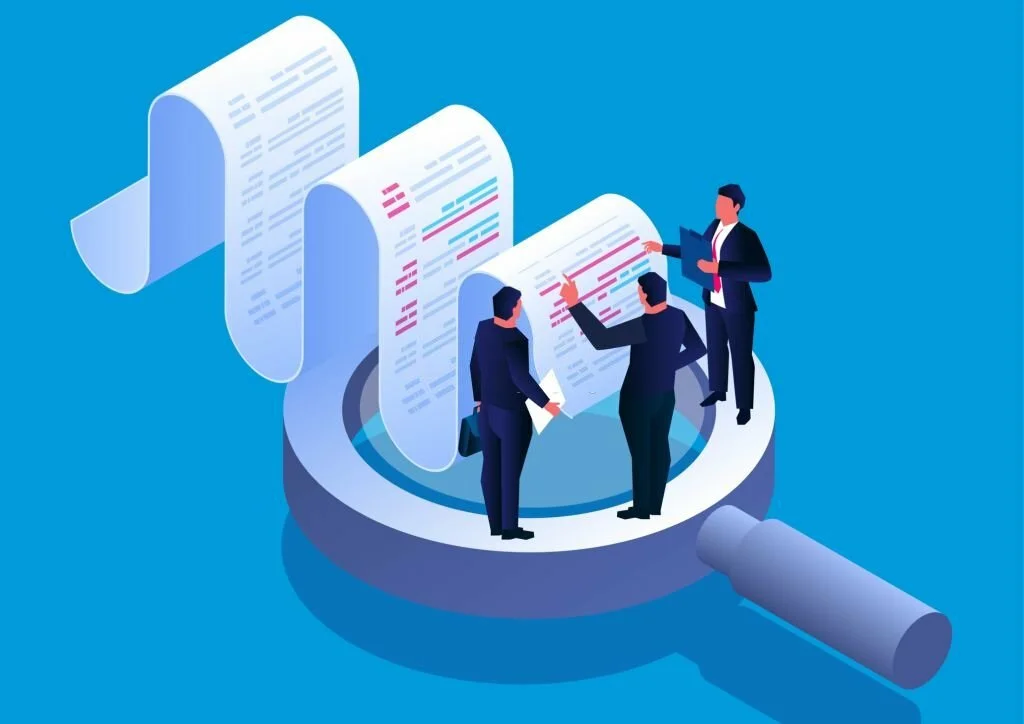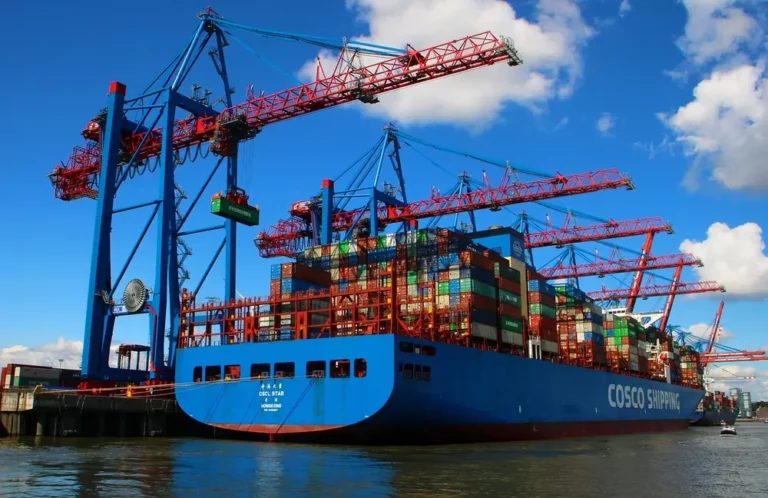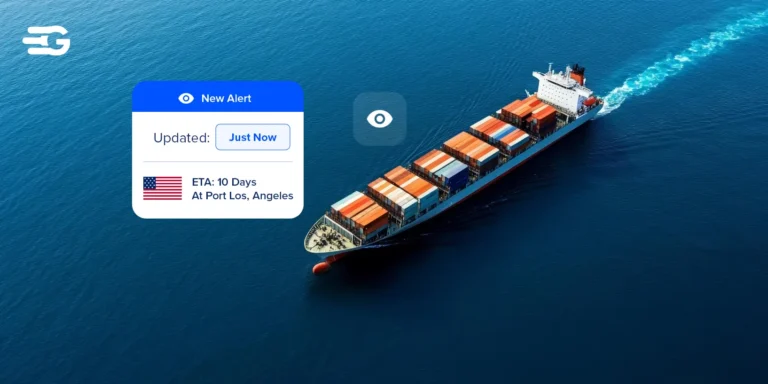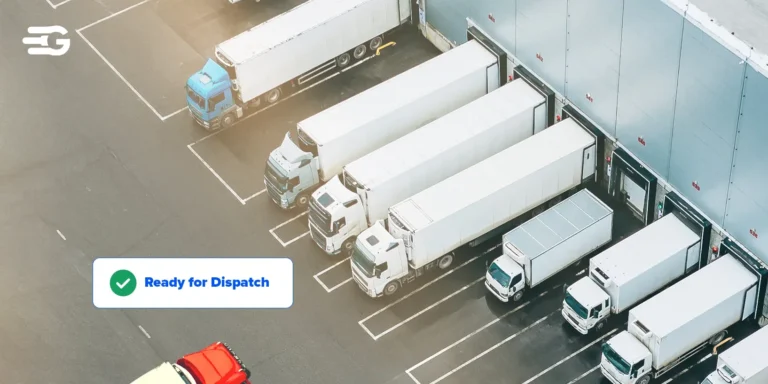List of Incoterms 2025 Guide: How to Use them?
In the complex world of international shipping, understanding Incoterms 2025 is crucial for companies looking to expand globally. Incoterms 2025 are essential guidelines that dictate responsibilities in shipping processes, including who handles customs fees and shipping mishaps. This was clearly demonstrated when a Japanese company, a leader in computer chip technology, faced unexpected fees and delays at U.S. customs. By not selecting the appropriate Incoterm, they encountered significant challenges.
Incoterms 2025 act as a strategic playbook for businesses, from large corporations to small startups, ensuring a clear understanding of shipping responsibilities. This knowledge is not just a formality; it’s a strategic necessity to avoid surprise costs, delays, and common pitfalls of international trade. By mastering Incoterms 2025, companies ensure their products navigate through international logistics smoothly, avoiding unforeseen complications and streamlining their expansion into the global market.
Overview of Incoterms
In the rapidly growing world of international trade, where goods traverse continents and oceans, a shared language is crucial to ensure smooth transactions. Incoterms are the indispensable dictionary of global commerce. They are the invisible ink in every trade agreement, the secret handshake that ensures your porcelain vases arrive in Paris without porcelain tears and your mangoes tango onto Mexican shelves without a bruise. These trade terms, carefully crafted by the International Chamber of Commerce (ICC), define the responsibilities, costs, and risks associated with the delivery of goods between buyers and sellers.
List of Incoterms 2025
The scenario of international trade is ever-evolving, and Incoterms are adapting to keep pace. Whether you’re a seasoned importer or a fledgling exporter, understanding these terms is paramount to navigating the global trade arena with confidence.
EXW (Ex Works)
For businesses looking to minimize their involvement in the delivery process, EXW is the ideal Incoterm. Under this term, the seller’s responsibility ends once the goods are made available at their location, typically their factory or warehouse. Buyers take on all subsequent costs and risks, including loading, transport, and customs clearance. This arrangement grants them full control over the shipment but also requires significant logistics expertise and resources.
FCA (Free Carrier)
With FCA, the seller delivers the goods to a carrier chosen by the buyer at a designated location. This could be a port, airport, or any other point agreed upon. While the seller arranges for export clearance and pays any associated charges, the buyer handles the main carriage costs and risks from the chosen location onward. This Incoterm offers a balance between seller involvement and buyer control, making it suitable for situations where buyers have preferred transport channels or expertise.
CPT (Carriage Paid To)
While the buyer retains responsibility for unloading and any import-related costs, CPT simplifies things for them by having the seller handle the main carriage to a named destination. This means the seller pays the freight charges but isn’t liable for damage or loss during transport. CPT balances cost allocation with convenience for buyers, making it a popular choice for international trade within a specific region.
CIP (Carriage and Insurance Paid To)
Similar to CPT, CIP involves the seller arranging and paying for the main carriage to a designated destination. However, CIP takes things a step further by requiring the seller to also procure insurance against loss or damage to the goods during transit. This offers increased peace of mind for buyers who don’t want to manage insurance themselves but still desire control over unloading and import costs.
DAP (Delivered at Place)
With DAP, the seller assumes responsibility for transporting the goods to the named place of destination and making them available on the arriving means of transport, be it a truck, train, or plane. However, unlike DPU, the seller isn’t obligated to assist with unloading. This makes DAP a cost-effective option for buyers who have the capacity for unloading at their designated location.
DPU (Delivered at Place Unloaded)
Stepping up from DAP, DPU requires the seller to not only deliver the goods to the named destination but also unload them from the arriving conveyance and place them at the buyer’s disposal. This additional responsibility comes with a slightly higher cost but offers convenience for buyers who lack unloading equipment or personnel.
DDP (Delivered Duty Paid)
For buyers seeking complete hassle-free delivery, DPU offers the ultimate solution. Under DPU, the seller covers all costs and risks associated with delivering the goods to the named destination, including customs clearance, duties, and taxes. This option simplifies the trading process but comes at a premium cost due to the extensive seller obligations.
FAS (Free Alongside Ship)
Imagine your goods nestled alongside a mighty vessel, ready to embark on their voyage following the Incoterms® 2020 for waterway transport. With FAS, your responsibility as the seller ends right there. You’ve delivered the goods to the named port, placed them neatly beside the designated ship, and cleared them for export. From that point on, the buyer takes the helm, arranging and paying for loading, carriage, and any associated risks. Think of FAS as a cost-effective option for adventurous buyers who relish control over their shipping arrangements.
FOB (Free On Board)
Prefer a smoother departure with less for the buyer to navigate? Choose FOB and watch your goods securely hoisted onto the nominated vessel at the named port. This Incoterm includes loading costs in addition to export clearance, offering the buyer a more streamlined experience. While slightly more expensive than FAS, FOB provides assurance that your goods are safely onboard and ready to set sail.
CFR (Cost and Freight)
Imagine your goods securely onboard, traversing the waves towards their destination. With CFR, your responsibility as the seller extends to arranging and paying for the main carriage to the named port. However, just like the unpredictable nature of the sea, the risk of loss or damage during the journey falls upon the buyer’s shoulders. CFR offers a cost-effective approach for buyers prepared to handle insurance and potential cargo issues.
CIF (Cost, Insurance, and Freight)
For those seeking ultimate calm amidst the maritime adventure, CIF provides a life raft of security. In addition to covering the main carriage costs like CFR, CIF includes procuring insurance against loss or damage during the voyage. This comprehensive approach allows buyers to rest assured that their goods are protected throughout their journey, regardless of the ocean’s whims.
Join 500+ Customers in Streamlined Shipping – See how!
Practical Applications of Incoterms 2020: Four Years Later
Case Study in International Shipping
These 11 Incoterms® can sometimes feel daunting to understand. But fear not, let’s better understand through a practical case study that breaks down Incoterms in action. We’ll step into the shoes of real-world buyers and sellers, navigating the ups and downs of international shipping and the different modes of transport, through the following case of Atlas Mining and Amiko Mine.
Atlas Mining in Canada and the Amiko Mine in New Caledonia present a classic tug-of-war in international shipping. As the seller, Atlas would typically prefer the buyer to shoulder the responsibility and cost of transporting the equipment from their factory. However, for the Amiko Mine, entrusting a distant seller with everything until port arrival feels risky and inconvenient.
Finding common ground is crucial. EXW, the “Ex Works” Incoterms rule, emerges as a potential solution. With EXW, Atlas fulfills its obligation by having the equipment ready at its factory at the agreed-upon time. The Amiko Mine then takes over, arranging and paying for everything from pick-up to port delivery.
For Atlas, this minimizes involvement and risk. They avoid the complexities of long-distance shipping and potential issues with customs clearance in New Caledonia by applying the EXW Incoterm® rule. The Amiko Mine, on the other hand, gains control over the process, choosing their preferred carrier and potentially optimizing costs.
EXW offers transparency as another advantage. By upfront understanding all their costs, the Amiko Mine can factor them into their budget and avoid surprises. Additionally, they can leverage their local expertise to navigate customs regulations and secure competitive shipping rates.
However, EXW isn’t without drawbacks. Atlas loses some control over the shipment’s fate, potentially impacting their reputation if delays or damage occur. The Amiko Mine, while empowered, also shoulders the burden of finding reliable transportation and navigating potential export formalities from Canada. EXW grants control and cost transparency for both parties, even though with some drawbacks like Atlas risks reputational damage while Amiko would face logistical complexities and export hurdles.
Ultimately, EXW offers a balanced solution for Atlas and the Amiko Mine. It respects both parties’ preferences while fostering clarity and cost control. Open communication and a shared commitment to smooth logistics will be key to ensuring a successful shipment, despite the geographical distance and initial tug-of-war.
Compliance and Legal Considerations
Incoterms, while convenient trade shortcuts aren’t immune to the intricate world of legal and compliance considerations. Here’s a breakdown of the key things to keep in mind:
- Customs clearance: Depending on the Incoterm, the responsibility for navigating customs formalities falls on either the buyer or seller. Misunderstandings here can lead to delays, fines, and even shipment seizure. Choosing the right Incoterm ensures both parties are equipped to handle their respective customs obligations.
- Export/import regulations: Different countries have unique regulations for both outbound and inbound shipments. Selecting an Incoterm® that aligns with these 2020 rules can prevent costly compliance issues and delays.
- Trade sanctions and embargoes: Be mindful of sanctions and embargoes in place for specific countries or goods. Certain Incoterms may unintentionally place responsibility for navigating these complex restrictions on the wrong party.
- Risk transfer: Incoterms clearly define the point at which risk for loss or damage to the goods transfers from seller to buyer. This is crucial for determining who bears the financial burden in case of unforeseen events as per the regulations of Incoterms® 2020.
- Contractual clarity: Even with Incoterms, contract wording is critical. Misinterpretations or discrepancies in ules can lead to costly legal battles. Clearly specify the chosen Incoterm and its intended meaning within the sales contract.
- Insurance coverage: Different Incoterms dictate the minimum level of insurance required. Ensure the agreed-upon coverage aligns with the chosen Incoterm to avoid gaps in protection.
Preparing for Incoterms 2025
Tips for Businesses and Traders
Whether you’re a seasoned globetrotter or embarking on your maiden voyage in international trade, these expert tips will equip you to navigate the Incoterms landscape with confidence.
Embrace the Upgrade to apply Incoterms® 2020 and prepare for the Incoterms in 2025.: Ditch those dusty manuals! Invest in updated Incoterms knowledge – understand upcoming revisions, navigate local regulations that can snag your progress, and ensure the right party bears risk should storms hit. Knowledge is your fuel, clarity is your map.
Seek Expert Guidance: Don’t sail alone in complex transactions. Legal and Incoterms experts are your seasoned navigators, helping you choose optimal terms, draft watertight contracts, and anticipate hidden reefs. Their advice can ensure a smoother, safer journey.
Adaptation is Key in understanding and applying the 11 Incoterms®: Don’t fear the changing tides. Embrace the update, stay informed, and leverage the latest rules. By being adaptable and well-equipped with the knowledge of Incoterms Rule, you can conquer the challenges of a new trade landscape and set sail for a prosperous voyage under the ever-shifting skies of global commerce.
Educational Resources About the Trade Terms
Want to master the intricate language of international trade? Here are a few educational resources to guide you through the 2025 rules, and help you navigate the exciting world of Incoterms:
- International Chamber of Commerce (ICC): The official home of Incoterms, the ICC website offers comprehensive information, downloadable versions of the rules, and even FAQs.
- ICC Academy: Deepen your understanding with online courses, certifications, and live webinars led by Incoterms experts.
- Incoterms 2020 – what are the key changes? by GoComet- GoComet helps break down all the changes to not in this blog on the Incoterms 2020.
- Incoterms 2020 Game: Put your knowledge to the test with this interactive game from the ICC. Test your skills and learn in a fun way.
- Explainer Videos: Find short, animated videos on YouTube that break down specific terms in easy-to-understand terms. Search for “Incoterms 2020 Explained” for a variety of options.
Conclusion: Navigating International Trade with incoterms® 2025
Incoterms 2020 may not be the latest edition, but mastering their intricate language remains your passport to smoother international transactions. Remember, knowledge is your anchor, adaptation your life raft, and expert guidance your seasoned navigator. So, raise your sails, embrace the evolving landscape of Modes of Transport, and chart your course for a prosperous voyage under the ever-changing skies of global commerce using the guide of Incoterms® 2020. Remember, the journey for understanding Incoterms® doesn’t stop here, keep an eye on the upcoming Incoterms in 2025. Stay informed, refine your trade mastery with each shipment, and become a legend in the vibrant tapestry of international trade.






